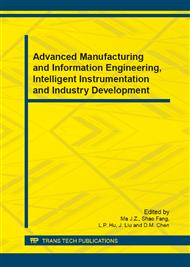p.3047
p.3052
p.3056
p.3060
p.3067
p.3071
p.3076
p.3080
p.3084
A BGP Fast Convergence Mechanism Based on Doubtful Path Judgment
Abstract:
The stability of Border gateway protocol (BGP) are directly related to the performance of the Internet. However, experiments show that BGP has serious slow convergence problem and its performances cannot meet communication needs well. Thus, a BGP fast convergence mechanism based on doubtful path judgment is proposed in this paper. Firstly, by analyzing the relationships between failure paths, doubtful paths containing failure links are computed. Secondly, a policy of doubtful path validity inquiry and its corresponding messages are designed to avoid computing wrong doubtful paths while multiple links fail simultaneously. Meanwhile, in order to avoid the waste of network resources caused by the policy, a finite state machine is designed to handle nodes’ state transitions. Finally, doubtful paths are suppressed to take part in routing decisions in the stage of BGP path exploration and the fast convergence is achieved. The mechanism is implemented on the prototype system, and its validity and practicability are tested. Experiment results show that the mechanism is feasible and effective.
Info:
Periodical:
Pages:
3067-3070
Citation:
Online since:
August 2014
Authors:
Keywords:
Price:
Сopyright:
© 2014 Trans Tech Publications Ltd. All Rights Reserved
Share:
Citation:


